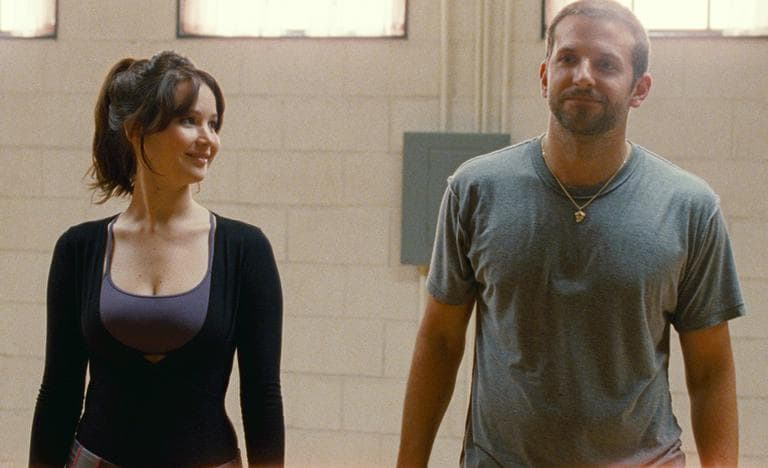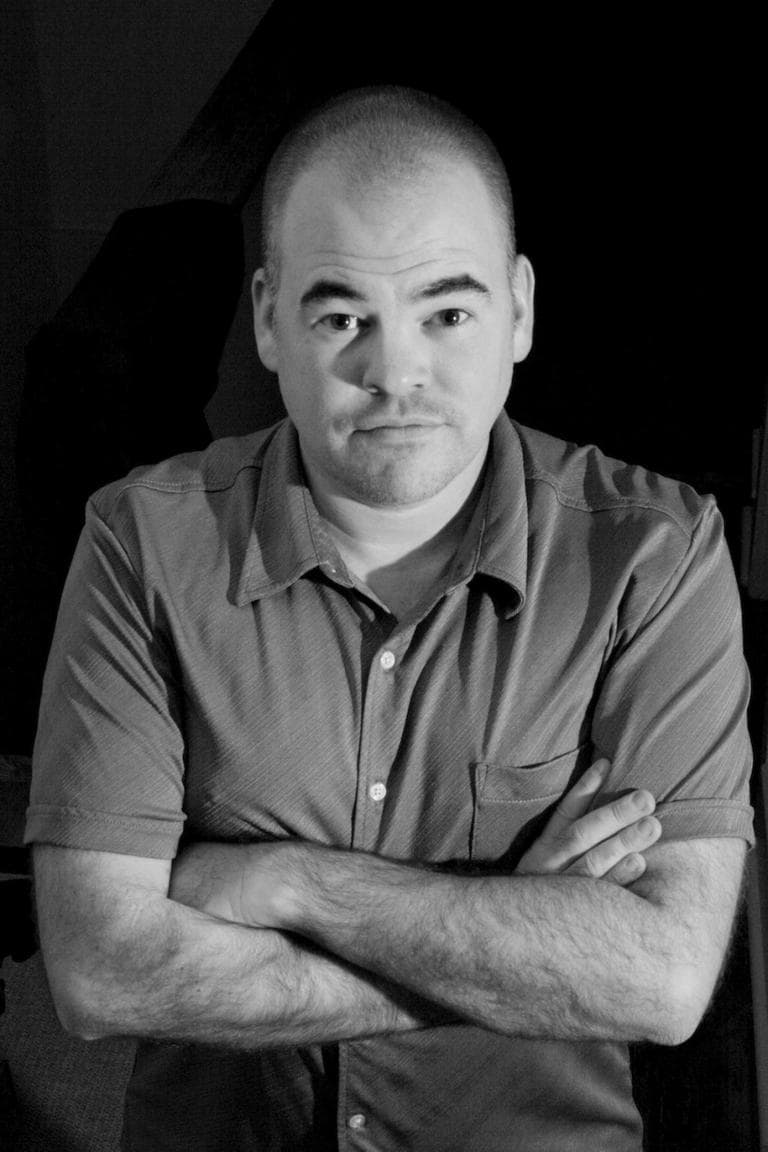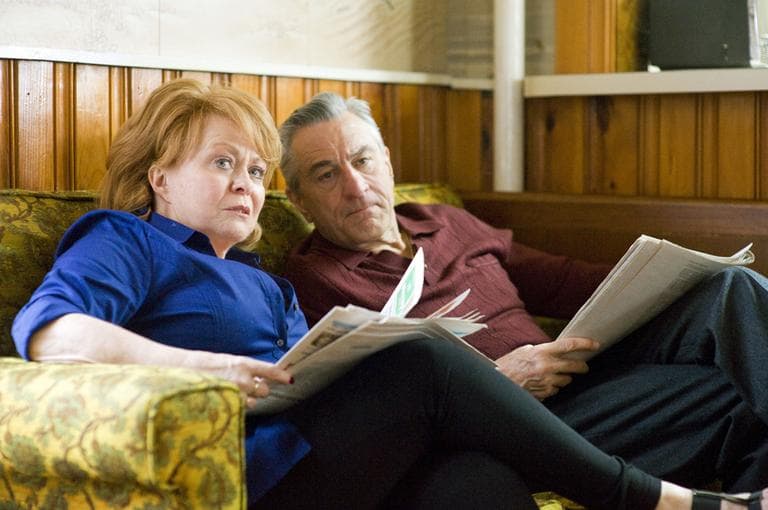Advertisement
'Silver Linings Playbook' — Reading Is Believing


If you thought the fanaticism of Philadelphia Eagles fans was exaggerated in the movie, “Silver Linings Playbook,” in which a character bets the house on a game against the Cowboys, you should read the book. And if you think the fanaticism is exaggerated in the book, in which televisions are broken, fights break out, and people go into depressions over the Eagles, you should visit the author, Matthew Quick in Holden, Mass., before an Eagles home game. But don’t cut it too close – he’ll be getting in his car to make the drive to Philadelphia where he still has season tickets for the Eagles and commutes to every home game.
I phoned Quick recently, because as enjoyable as David O. Russell’s movie is, the book is that much better. The book warns that while love and relationships are a silver lining to a lot of clouds in life, it’s not happily ever after with the soulmate of one’s dreams. The film, for all of Russell’s indie cred, is basically a Hollywood movie.
The message of the book is that life is not a Hollywood movie while the movie says it sort of is.
And I imagined the brooding De Niro of “Cape Fear” as the father. So it was a shock to see the warmer and cuddlier De Niro of Hollywood movies like “Meet the Parents.” Still it’s a good movie and there’s no improving on Tiffany – Pat’s equally disturbed running mate – played to perfection by Jennifer Lawrence. There’s no imagining anyone else in that role.
Quick is married to another writer, Alicia Bessette, whose parents live in Central Mass. “They gave me a free place to write for three years. We’re here for now. I love this area, hiking Wachusett, going to Vermont, but I love Philly. I don’t know where we’ll end up.”
One aspect of the book that’s not in the movie – Pat had a violent episode that cost him his memory of the previous few years, thereby not realizing that the Philadelphia Eagles had made it to Super Bowl XXXIX, where they lost a close game to the Patriots. Here’s an edited version of the interview:
Ed Siegel: I would bet that unlike Pat you don’t have amnesia and there was a certain event in 2005 …
You’re gonna go there, huh?
(Laughs) Well, with the Eagles suffering [3-9] and the Patriots [9-3] still in contention, might there be any drift to the Patriots?
I’m a season ticket holder of the Eagles still. Last Monday night I drove down to see them disappoint in horrific fashion [30-22]. But a few years ago I was sitting next to my nephew, who’s a big Tom Brady fan, as the Patriots lost to Eli Manning and the Giants [the first time] and my nephew is crying and I said, ‘How many Super Bowl wins do you have in your life and I don’t have one!
But I’m a Philadelphian through and through. It’s so much more than football. When I go home to the games its my connection to my family and friends. Being an Eagles fan is good training for striving and never getting there. I believe in underdogs and that’s what got me through [the years before “Silver Linings” hit]. It was a lonely period, not collecting a paycheck, disappointing my family. When you send out all your stories to literary magazines and you get so many rejections over and over … My relationship with the Philadelphia Eagles got me through the hard-knock life of being a writer.

Let’s talk about the movie. How difficult was it letting go of the material?
When I got the phone call, I didn’t even know I had a film agent. My literary agent in New York had a partner. So when I got the call from LA, and they started throwing names around like Sydney Pollack, Anthony Minghella [both now deceased], Harvey Weinstein … First I thought my friends were playing a joke on me. And then they brought out David O. Russell … I’ve loved all his work. I was more excited by his name than any of the actors and of course I was excited by so many A-list actors. But as a storyteller I don’t idolize actors, I idolize storytellers. It is hard to work on something personal and turn it over to someone else, but it makes it a lot easier when it’s David O. Russell.
He took the source material and made it a David O. Russell film. … For the first half hour or so of the screening I was sitting there with clenched fists. A half hour in and they were no longer clenched and I was smiling and I kind of lost myself in the story and realized that we really had something. I called David and we talked on the phone for about an hour. My work is the first book he ever adapted and mental health is as important to me as it is to him. He brought me into the fold and that doesn’t always happen. It really speaks to his character and how much the subject of mental health means to him.
Do you want to talk about your interest in mental health?
I’ve talked very openly and honestly about my experiences with depression and anxiety. My great grandmother died in what was then called a mental health institution. I grew up in a blue-collar neighborhood in Philly and people didn’t talk about that. It’s obvious the way people come up to me now that we’re still not talking about this stuff enough. Which is amazing, in this year, that it’s still stigmatized.
I’ve struggled with depression going through the writing period and taking the chaos and putting it on the page. People thank me for talking about it. I’m not Pat. Art, and a film like this one which is having success and is a little more upbeat, deal with mental health in a serious way. It doesn’t sugar-coat the book. Bradley Cooper in crisis is pretty hard to watch. I think it’s a good avenue to go down, when they read the book and see the movie it starts a dialogue. First and foremost we’re storytlellers but if we can start a dialogue …
I know on the website it says to read the book first, but I’m not sure that’s such a good idea. I did that and I thought the movie suffered in comparison, particularly in terms of the message of the book being that life is not a Hollywood movie while the movie says it sort of is.
I’m using the metaphor in the book that he is in a movie psychologically and I think that was difficult to put on the screen. The movie is more of a dramedy that I think plays well during the holiday season. The book was the way I wanted to tell the story, but I do think there’s a place for the way David tells it. It casts the net wide and may be a little more accessible.
There was one thing I liked better about the movie. The characters had much better taste in music. [Pat is haunted by Kenny G and “Songbird” and he and Tiffany and dance to Bonnie Tyler’s “Total Eclipse of the Heart.” In the movie it’s Stevie Wonder’s “My Cherie Amour” and they dance to a range of things, including Bob Dylan and Johnny Cash’s “Girl From the North Country.”]
I’ll tell you something funny. In the book, originally it was “My Cherie Amour and he had the original galleys. He didn’t know that I had changed it because I couldn’t get the rights … We did an event together and he said, “Tell them all the lines that I kept that were yours.” A lot of what I did was on the screen.
You’re obviously versed in popular culture, between football and pop music. Do you think people can attain the same transcendence from football and pop music as they can from a Mahler symphony or “Huckleberry Finn?”
Absolutely, I do. I did my thesis on “Soul Mountain” by Gao Xingjian. It rocked my world, and you can’t get more literary than that. But the more things you like, the happier you are. In my 20s I was a lit snob, I’d only cop to going to art house films and listening to indie music. Now I love classical music, jazz. I think you really miss out on life if you’re not open to everything.
I grew up going to movies like “Goonies” and “Rocky,” all the kind of things Pat likes in the book. For a while I was ashamed of it … I never want to limit myself. I wrote “Silver Linings” as a response to an MFA program where I was writing all this literary stuff. I wanted to write something that is fun to write and something that my brother and my friends back in Philly, who don’t read novels, might read. I was saying that I don’t have to write like Jonathan Franzen or Haruki Murakami. One of the things I’m most proud of is that my family and students say, “That’s true to the core. That’s Matthew Quick.”
Another view:
David Edelstein's review of the film
This program aired on December 3, 2012. The audio for this program is not available.

